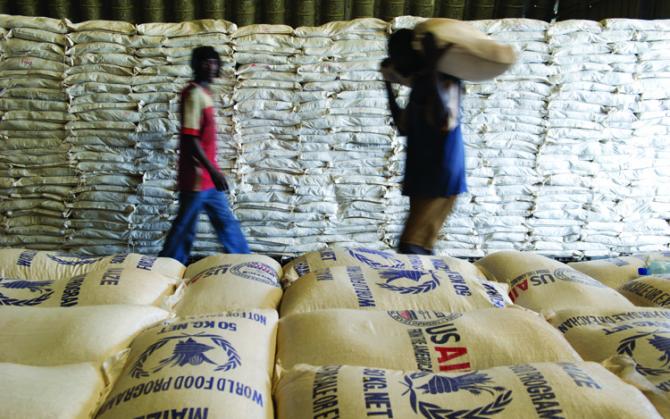There’s enough food in the world to feed everyone—all 7-plus billion of us. So why are so many people going hungry?
“The core problem is food distribution, not supply,” says Ozlem Ergun, Georgia Tech professor of industrial and systems engineering. “It’s quite expensive and challenging to deliver food that is abundant in one region of the world to another.”
As co-founder and co-director of Georgia Tech’s Center for Health and Humanitarian Systems, Ergun and her team of faculty, staff and students work with groups such as the United Nations’ World Food Programme to create more efficient food distribution systems. When thinking about who can solve the world’s hunger crisis, industrial and systems engineers may not exactly be the heroes that jump to mind. But Ergun says the engineers who make these sorts of logistical and supply chain improvements not only save time, effort and money, but also human lives.
Mallory Soldner, PhD IE 14, is one of these unsung hero engineers. As a graduate student, Soldner spent more than a year in Rome helping the World Food Programme create a supply chain dashboard designed to help humanitarian workers track problem areas using key performance indicators. For example, one aspect the dashboard measures is the reliability of food commodity orders placed by a country office. The dashboard uses graphs to show what percentage of orders have arrived on time, in good quality and in the right amount to their destination. If orders are arriving early or late, the dashboard will help pinpoint what’s causing the problems.
“It promotes a better dialogue around what’s happening, why it’s happening and what you have to do to tweak things to get where you want,” Soldner says. “It’s a really digestable way to focus on the most important pieces.”
Soldner, who now works at UPS’ corporate headquarters in the advanced analytics group, says engineers indeed have an important role to play in the humanitarian arena. “Engineers help translate solutions to areas where tradeoffs are difficult,” she says.
The Center for Health and Humanitarian Systems was what initially attracted Soldner to Georgia Tech. She attended the Center’s annual logistics conference before she decided to pursue her doctorate at Tech.
The center was established in 2007 as a way for students and faculty to share their skills to improve logistics in the public sector. And that’s important because resources in the nonprofit world are often limited.
“Every dollar that can be saved in operational costs can be used to help another person,” Ergun says.
But humanitarian organizations present some very unique challenges. Unlike at a typical private-sector company, it’s very difficult to predict what demand will be like from one day to the next. A typical corporation can predict demand for its products in the future based on sales from past years. But predicting a tsunami or political revolution isn’t quite as straightforward.
Humanitarian organizations often struggle with consistent funding as well.
“Even if you can estimate demand, without a confirmed donation you cannot start your supply chain action,” Ergun says. “The money starts to trickle in when there’s an emergency. But when there’s an emergency or humanitarian event—such as a storm that wipes out food supplies—it’s already too late to start buying.”
Simply put, Ergun says one of the goals of the center and its partnerships with humanitarian organizations is to help ensure that they get the right amount of food, at the right price, to the right place at the right time.
“That really fits into our expertise at Tech,” Ergun says. “We have one of the best departments in the world in this area and we have a lot of experience.”
In fact, Ergun believes the Institute deserves some credit for the growing prominence of engineering in the humanitarian sector. “We were one of the pioneer groups, but it has become quite a big field for academia,” Ergun says. “And I think part of it is due to our leadership.”
This article first appared in the Georgia Tech Alumni Magazine Vol. 91, No. 1 2015.
